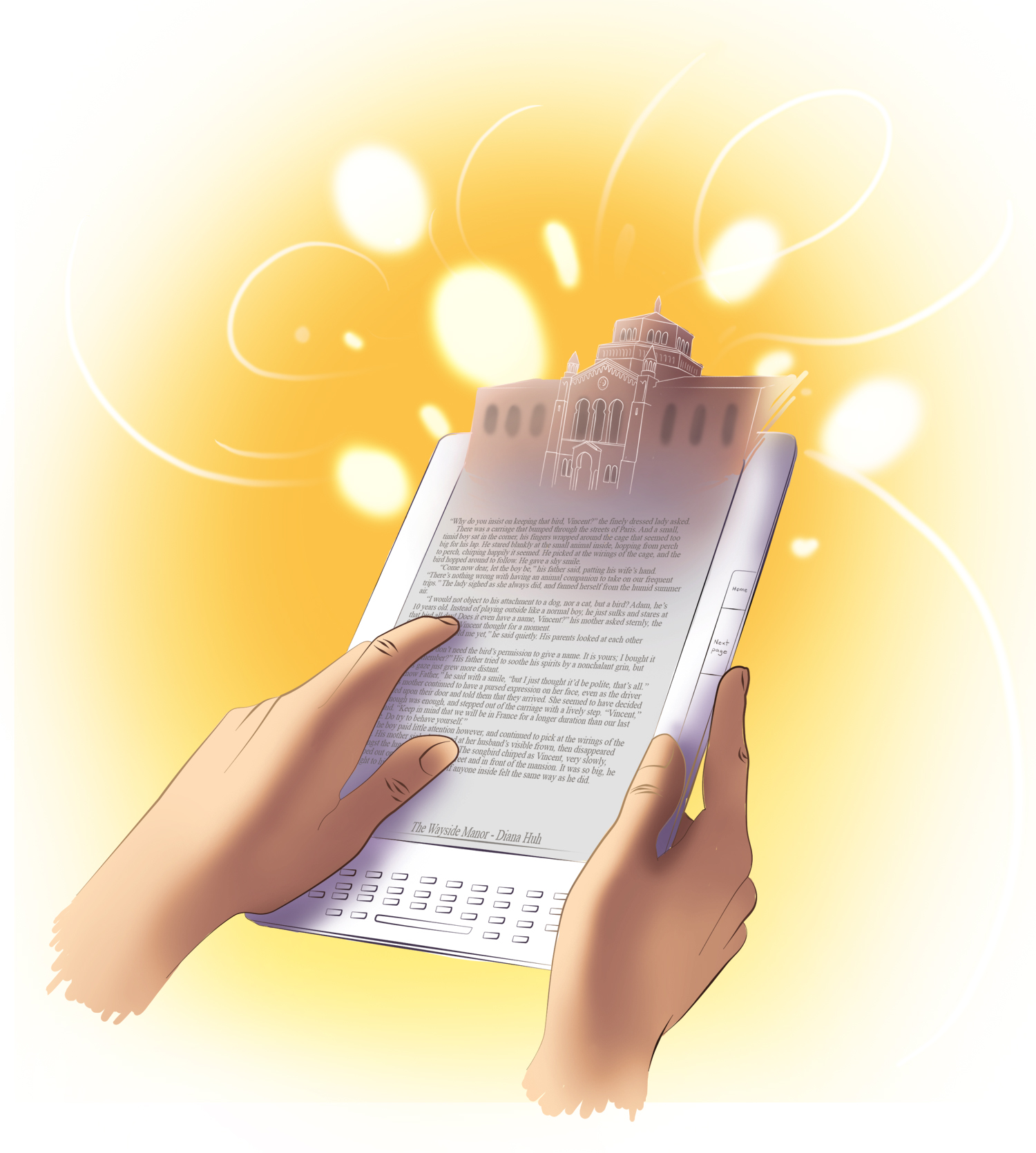UCLA should begin adapting to the digital alternative and expand its online collection to avoid the high costs of textbooks and printed materials

By Roy Hu
Aug. 1, 2011 12:21 a.m.
Recently, Borders decided to call it quits, finally closing its remaining doors after fighting a long and losing battle with a world in which technology is king. I suppose they never really had a chance. The last time the company turned a profit was in 2006.
It certainly doesn’t require any reading between the lines to decipher the message scribbled out, or perhaps typed out, by the almighty invisible hand of the market: It’s time to turn the page on traditional print media.
With the world heading toward digitization at a dizzying pace, it only makes sense for UCLA to follow suit. UCLA should continue to invest in its online collection. Print is expensive. With tuition costs on the rise, easy access to online materials has never been more important.
More than ever, students are turning to alternatives for buying textbooks. Students are ordering books online from Amazon and renting books from friends to avoid the high costs of buying textbooks from the Associated Students UCLA Store. Although the textbook buyback program at the ASUCLA store has cut some costs, a push toward online textbooks could further eliminate the high prices of textbooks for students.
UCLA has already been taking steps in the right direction. Despite the quagmire of distribution laws, we currently have more than 1 million electronic books in our collection ““ and we’re working on expanding that number. Since the industry is so new, the problem is striking the compromise between maintaining easy access to information and also allowing the electronic book companies to optimize profits. The hope is that eventually, students will be able to access a wide variety of online materials at a low cost.
Renting a physical book from the library is the cheapest alternative to buying a textbook, but the limited number of copies in the library makes renting impossible for all students. Having electronic copies of books would allow infinite amounts of students to rent the same textbooks. However, digital publishing companies are already putting caps on the amount of copies of a single e-book that libraries can lend.
But students are rapidly adopting the electronic textbook. Currently, three-quarters of college students still prefer the traditional, physical textbook, and only 2.8 percent currently are using e-books, according to a 2011 National Association of College Stores, a professional trade association, which represents more than 3,000 universities nationwide.
However, this number is predicted to balloon to around 10 to 15 percent by next year.
It’s not that traditional stores like Borders are bad, it’s that electronic books are simply better. With essentially no cost of production or distribution, digital publishers can greatly reduce the cost of production, and pass on many of these gains to consumers.
In short, it’s become impossible for traditional brick-and-mortar shops to compete.
Publishing companies striving to maintain high revenue have contradicted the libraries and universities that are concerned with a ubiquitous access to knowledge and differing motives that have complicated the transition from print to digital archives.
Eventually, we need to let go of the romanticism and the nostalgia: the evening dates with girls over Seattle’s Best or Starbucks after meandering through the bookstore. One thing is for certain: The business model of print media has suffered an irreversible blow.
Personally, I don’t think print media is dead at all ““ or ever will be. It’s just going to look very, very different. In 2008, online revenue for the Los Angeles Times covered its newsroom cost, proving that it’s indeed possible for online and print to coexist. The New York Times, too, has found promising signs of print and digital coexistence, signing up more than 100,000 subscribers since in March when it began limiting the articles readers could view online content for free.
But, when the obituary for printed books as we know them is being written, you can bet we’ll read it on our Nooks and Kindles. Perhaps even for the better.
Are you ready to attend the funeral of print media? Email Hu at [email protected]. Send general comments to [email protected].


